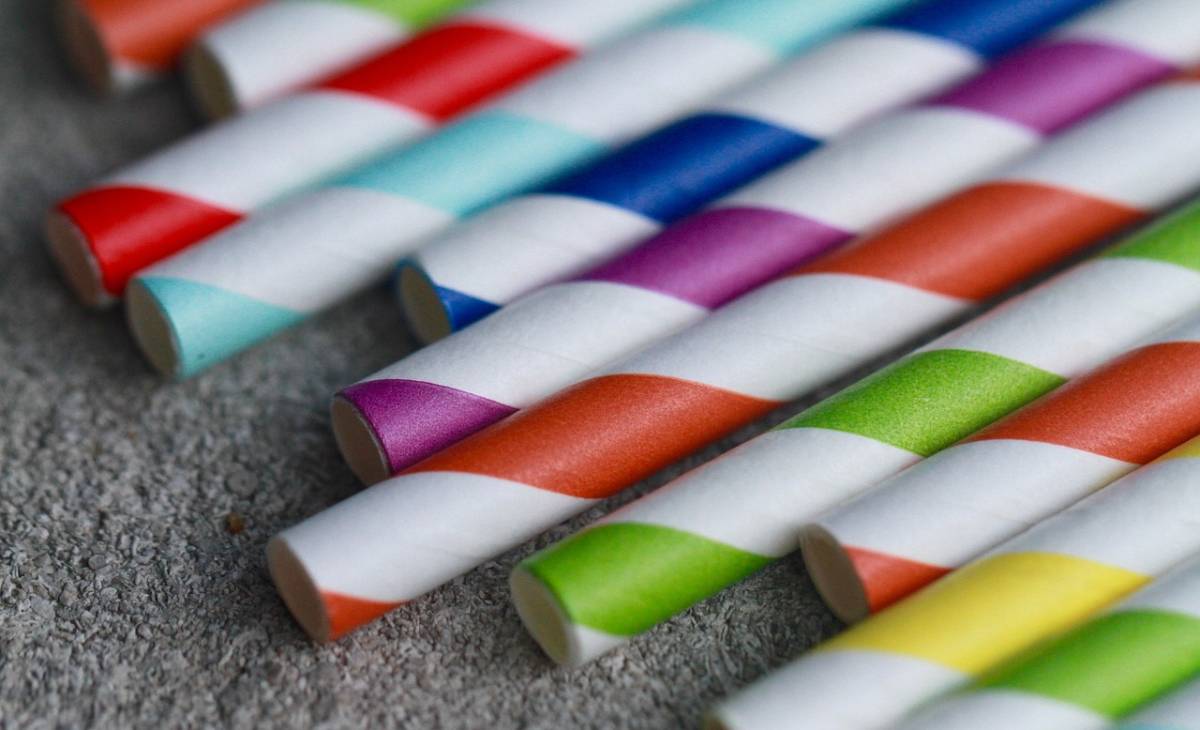Belgian study reveals high levels of PFAS in paper and plant-based straws
A new study conducted by Belgian researchers indicates that drinking straws made from paper and bamboo contain higher levels of poly- and perfluoroalkyl substances (PFAS) than their plastic counterparts.
Often dubbed "forever chemicals," PFAS are widely used in everyday goods, from outdoor gear to non-stick cookware, due to their ability to resist water, heat, and stains. However, these chemicals can potentially cause harm to humans, wildlife, and the environment.
The University of Antwerp's researchers found that the majority of tested straws were laced with PFAS, with those made from paper and bamboo showing the highest concentrations. The findings, published in the peer-reviewed journal Food Additives and Contaminants, challenge the notion that plant-based straws are a more sustainable and eco-friendly alternative to plastic straws.
"Plant-based straws are often promoted as a greener choice compared to plastic," says Dr. Thimo Groffen, an environmental scientist at the University of Antwerp and a contributor to the study. "But the prevalence of PFAS in these straws suggests that might not be the case".
The study examined 39 different brands of straws made from five materials: paper, bamboo, glass, stainless steel, and plastic. The straws, sourced mainly from shops, supermarkets, and fast-food restaurants, were put through two testing phases for PFAS. The results showed that PFAS were present in 69% of the brands tested, with paper straws topping the list (90% of brands tested) followed by bamboo (80%), plastic (75%), and glass (40%). None of the stainless steel straws tested contained PFAS.
The PFAS found in the straws included perfluorooctanoic acid (PFOA), a substance banned globally since 2020, along with "ultra-short chain" PFAS like trifluoroacetic acid (TFA) and trifluoromethanesulfonic acid (TFMS). These are highly water-soluble and thus could leach from the straws into drinks.
Although the concentrations of PFAS were low and the risk to human health might be limited due to occasional straw use, PFAS can linger in the body for years and build up over time. "Small doses of PFAS, while not harmful by themselves, can contribute to the overall chemical burden in the body," Dr. Groffen explains.
The exact origin of the PFAS in the straws is unclear, whether they were intentionally added by manufacturers to make the straws water-resistant or were contamination by-products. However, the widespread presence of PFAS in paper straws suggests that they were likely used as a water-repellent coating. Considering bamboo straws, potential sources of contamination include the soil where the plant-based material was grown in and the water used in the manufacturing process.
The study did not explore whether PFAS could leach from the straws into liquids. Dr. Groffen concludes, "The detection of PFAS in paper and bamboo straws indicates they may not be as biodegradable as assumed. We didn't find any PFAS in stainless steel straws, so consumers might want to consider this type or simply avoid using straws altogether".
Source:






















